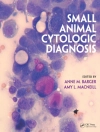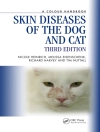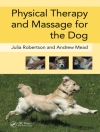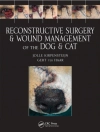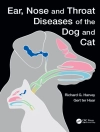This is a practical book exploring how to conduct animal assisted intervention (AAI) in ways that protect and prioritize animal and human welfare. This resource is for social scientists (e.g., psychology, social work, human development and family studies, etc.), as well as ethologists and animal behaviour and welfare students and practitioners. The book is a series of short chapters that depict a wide array of AAIs and their potential welfare concerns. The chapters include descriptions of the AAI offered, the welfare challenges, and ways to successfully mitigate these challenges. This book also covers critical topics including therapy animals’ aging, retirement, and death as well as ethical issues including animal consent. Species include not only dogs, but horses, rabbits, and other small animals (e.g., guinea pigs, mice, etc.). Types of AAI involve individual interventions as well as crisis dogs (those who help after natural and man-made disasters), and residential animals. The book is designed to be a practical, engaging book with links to video and examples of real-life situations. It is evidence-based, yet user-friendly and directly applicable to students and practitioners.
This highly practical and engaging book with examples of real life situations, videos and case studies, explores how to conduct animal assisted interventions in ways that protect and prioritize animal and human welfare. The book:
· Explores how to conduct animal assisted intervention (AAI) in ways that protect and prioritize animal and human welfare.
· Discusses potential welfare challenges including how to advocate for the animal, animal consent, and the animal’s aging, retirement, or death.
· Evidence based approach to mitigating welfare concerns for a wide range of therapy animals including dogs, horses, rabbits, rodents, and exotic animals – and their recipients.
An invaluable resource for ethologists and animal behaviour and welfare students and practitioners, as well as social scientists (e.g., psychology, social work, human development and family studies).
Giới thiệu về tác giả
Temple Grandin is Professor of Animal Science at Colorado State University. Dr. Grandin’s work includes design of animal handling systems, research on livestock behaviour, and auditing animal welfare. She has visited 26 countries and has served on the OIE animal welfare ad hoc committee for slaughter. Her previous livestock books include Livestock Handling and Transport, Genetics and the Behavior of Domestic Animals and Humane Livestock Handling. Her popular press books on animal behaviour have been both U.S. and international bestsellers. Throughout her career, Dr. Grandin has worked to combine scientific research results with practical application in the field. In the North America half, the cattle are handled in equipment she designed for meat plants. She has received awards for her work on animal welfare from both the livestock industry and animal welfare NGOs. She has awards from The Royal Society for the Prevention of Cruelty to Animals, The American Meat Institute, American Society for Animal Science and the Humane Society of the U.S.


